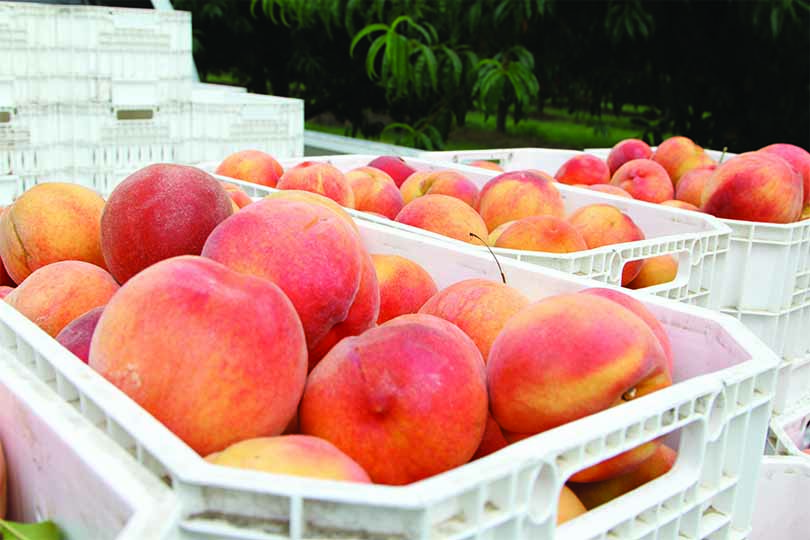By Jennifer Whitlock
Field Editor
Although February’s winter storm had Texas peach farmers concerned, both the quality and quantity of peaches are expected to be very good, according to Dr. Larry Stein, associate head professor and Extension horticulturist in the department of Horticultural Sciences at Texas A&M University.
“We were worried about that big cold spell because a lot of the trees that were already coming out were hurt, but it turns out that most of our trees had dormant buds or tight buds and were uninjured,” he said. “The other thing is it got cold gradually, so the trees had time to acclimate. When they start to bud out, they lose cold hardiness, but because of the way the cold came in, they survived.”
It’s possible there may be some growth die-back related to freeze damage when summer temperatures soar, but Stein felt optimistic that any damage would be minimal.
And all the showers washing across Texas in April and May are favorable to peach production. As long as peach orchards don’t see severe weather like hail or high winds, the moisture should provide a big boost.
“It had been fairly dry, and a lot of irrigation systems in Texas are supplemental at best,” Stein said in an interview with the Texas Farm Bureau Radio Network. “So, when we have this kind of widespread rainfall, it recharges the soil profile, and the trees are able to utilize that water, meaning we should have larger fruit.”
Stein is looking forward to a good crop year with high-quality fruit that peaks around mid-July. What he called the “flower initiation period” for next year begins in June, so the wet weather will also help next year’s crop, too.
One negative associated with increased moisture is an increase in pests. Farmers must be on the lookout for disease and insect pressure, Stein said.
Fungi, grasshoppers, leaf-footed bugs and stinkbugs all tend to make their presence felt in times of humid, wet weather. Grasshoppers mainly feed on foliage, but other pests feed on fruit and cause blemishes, ruining the aesthetic appearance of the fruit and causing it to bring lower prices, he noted.
Overall, though, Stein expects the abundance of green vegetation to keep insect populations spread out and not concentrated too heavily on peach orchards.
Thanks to the gradual onset of February’s cold spell and spring’s timely rains, he said it should be an excellent year with a bountiful harvest.
“We’re excited about the crop,” he said. “At one point in February it looked bleak, but Mother Nature has a way of taking care of herself, and it looks like the crop’s going to be okay.”


Where can I find them in the Tyler area.?
Where can I get them in round rock or cedar park area? HEB?